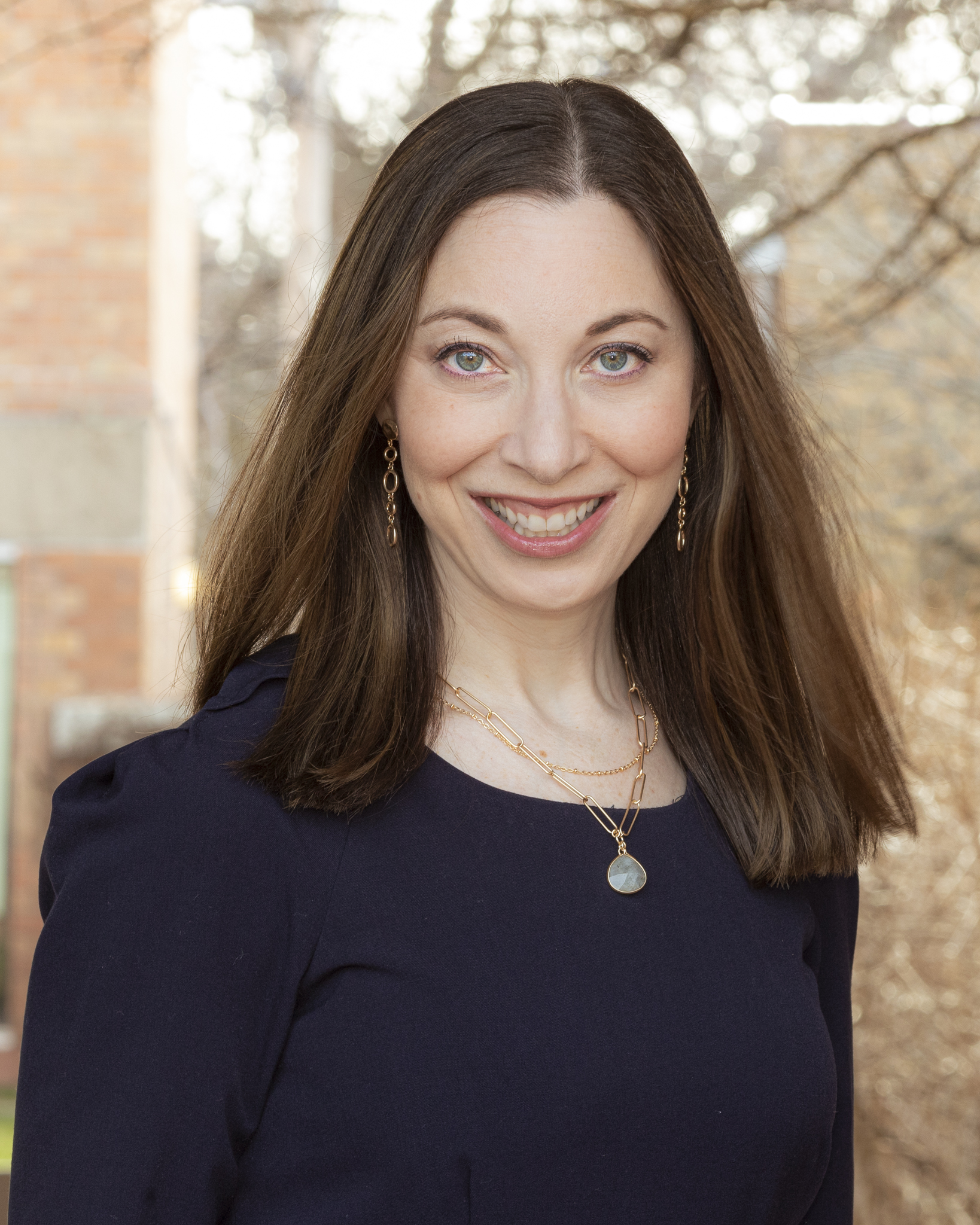Jaharis Health Law Institute Director brings her talents to this new role.

Wendy Netter Epstein, professor of law and faculty director of the Mary and Michael Jaharis Health Law Institute (JHLI), has been named the next Associate Dean for Research & Faculty Professional Development at the College of Law.
A member of the DePaul Law faculty since 2013, Professor Epstein is an expert in health law and policy, with an emphasis on the financing and delivery of health care and the application of behavioral economics principles to health industry problems—subjects that have dramatically increased in importance over the past year due to the COVID-19 pandemic.
The Associate Dean has multiple responsibilities that benefit the DePaul Law community. Professor Epstein will mentor faculty in their research and scholarly endeavors and facilitate academic conversations on the important issues of our time. She will also chair the College's programs committee, which brings esteemed scholars to speak at the law school.
Professor Epstein looks forward to what she can accomplish in the role. “Our faculty brings incredible expertise to the community across a broad range of subject areas. I hope to support them in their roles as public academics and to be a bridge between our faculty and the broader community that we serve." She continues, “I also look forward to fostering collaboration between colleagues and across disciplines and to furthering our own education as a faculty, so that we are always learning and striving to become better scholars and better teachers."
Dean Jennifer Rosato Perea adds, “I am very excited that Professor Epstein will be joining the 'Dean Team.' She will bring her talents as an innovator, builder and collaborator from the faculty directorship of JHLI to her new role. She leads by example through her nationally recognized scholarship, her engagement as a public intellectual and her mentoring of faculty fellows. She cares deeply about the success of DePaul Law and the role of our faculty in ensuring that success, and she will inspire all of us to achieve our potential."
Professor Epstein is an accomplished scholar. Her articles have been published in the Southern California Law Review; Minnesota Law Review; Emory Law Journal; Washington Law Review; Yale Journal of Health Policy, Law, and Ethics; and Cardozo Law Review, among others. She is also a public intellectual, sharing her perspectives in publications, including The Hill, Chicago Tribune and U.S. News & World Report. Her honors include being named a Public Voices Fellow of DePaul University's Op-ed Project and receiving both University and College awards for faculty scholarship and teaching.
Professor Epstein also answered a few questions about her career.
Q. Can you tell us about your background?
I went to college thinking that I was going to become a doctor. But while at the University of Illinois, I took a course on international human rights and learned that the United States was alone among peer countries in not recognizing health as a fundamental human right. This affected me tremendously, and ever since, I've been studying and researching health law and health policy. My goal is to shine a light on the challenges our health care system faces in delivering quality health care to all, regardless of ability to pay.
My path to becoming an academic was not entirely linear. After I graduated from Harvard Law School and clerked for Michael Daly Hawkins on the Court of Appeals for the 9th Circuit, I went into private practice at Kirkland & Ellis. There, I spent almost a decade as a litigator, representing mostly health industry clients, but also leading the firm's immigration pro bono efforts. Those years helped shape who I am as a scholar by giving me valuable insight into the workings of the health industry but also by showing me the work that needed to be done to help the vulnerable in our society.
I decided to transition into academia to have more time to pursue my research and advocacy work. But I continue to maintain an of counsel affiliation with my firm, and my work there continues to inform my scholarship today.
Q. What brought you to DePaul Law?
I was born and raised in the suburbs of Chicago, so I came to DePaul very aware of the strength of its reputation in our community and of its strong alumni base. But I was also drawn to the opportunity to join a top-ranked health law faculty. Indeed, from my earliest days on the faculty, I have had the honor of helping to shape the Jaharis Health Law Institute.
Q. What are some of the changes you've seen in health law in response to COVID-19? What are changes you expect to happen?
COVID has both illuminated and exacerbated health inequity that predated the pandemic. For the entire history of this country, certain populations (predominantly people of color and the poor) have lacked access to health care and have suffered worse health outcomes, not just because of limited access to clinical health care—although that is certainly important—but also because of the social determinants of health outside the hospital and the doctor's office. Health outcomes will improve if we improve housing conditions, reduce pollution and environmental toxins, and address poverty, just to name some issues. I hope that COVID will be the spark needed to spur collaboration to address these inequities. I plan to continue to do my part to better understand the problem and to urge policy responses that will address it.